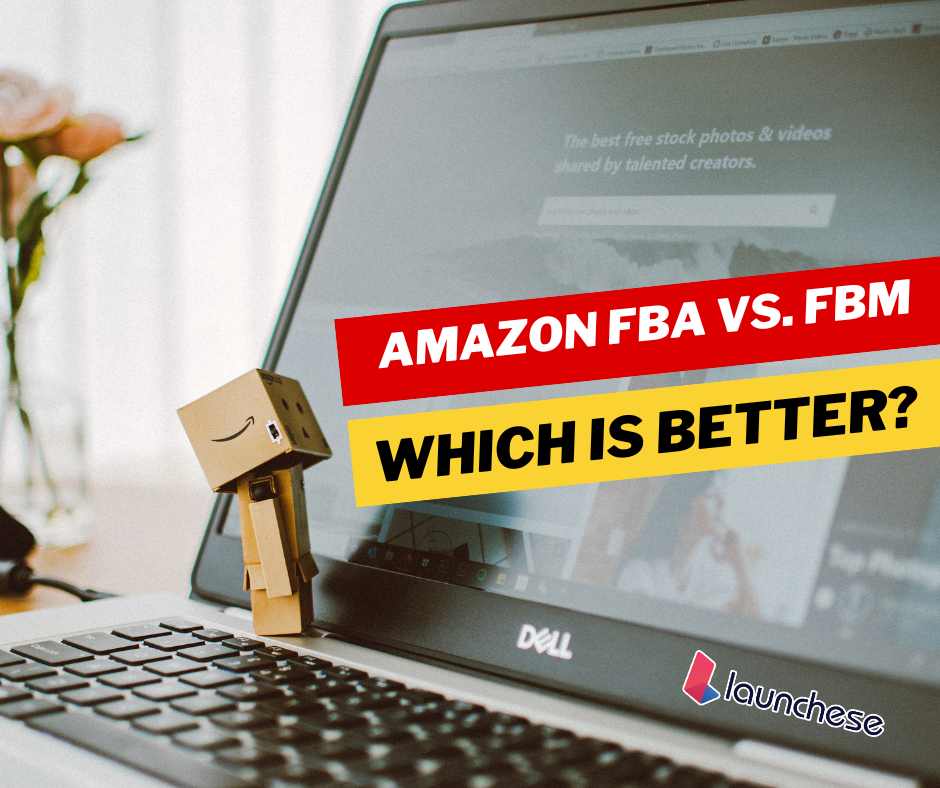Amazon has revolutionized the way people shop, and it has also transformed the way entrepreneurs and businesses sell their products. Two popular methods for selling on Amazon are Fulfillment by Amazon (FBA) and Fulfillment by Merchant (FBM).
Each approach has its own set of advantages and disadvantages, making the choice between them a critical decision for any seller.
What is Amazon FBA?
Fulfillment by Amazon (FBA) is a program offered by Amazon that allows sellers to store their products in Amazon’s fulfillment centers. Amazon takes care of everything from warehousing and packaging to shipping and customer service.
When a customer places an order for an FBA product, Amazon handles the picking, packing, and shipping of the item, as well as handling any customer inquiries and returns.
Related Articles:
Can an LLC Own Another LLC?
All About Business Licensing in the UK
Top 10 Business Ideas to Start in UK – Detailed Guide 2023
Pros of Amazon FBA:
Prime Eligibility: FBA products are eligible for Amazon Prime, which can significantly boost sales. Prime members tend to prefer products that come with free, fast shipping, and the Prime badge can give your listings a competitive edge.
Customer Trust: Amazon has built a reputation for excellent customer service and reliable shipping. When you use FBA, your products benefit from this trust, potentially leading to more sales and positive reviews.
Time-Saving: FBA eliminates the need for you to handle fulfillment tasks. You can focus on other aspects of your business, such as sourcing products, marketing, and expanding your product line.
Global Reach: Amazon FBA allows you to access Amazon’s global customer base. Your products can be fulfilled and shipped to customers not only in your home country but also internationally.
Scalability: FBA can handle large volumes of inventory, making it suitable for businesses looking to scale quickly.
Tip: Want to launch your Amazon business from scratch in the UK, choose a plan that aligns with your specific requirement. Click here!
Cons of Amazon FBA:
Fees: FBA comes with fees, including storage fees, fulfillment fees, and long-term storage fees. These costs can eat into your profit margins, especially if you have slow-moving inventory.
Loss of Control: When your products are in Amazon’s fulfillment centers, you have less control over the fulfillment process. This can lead to issues like mismatch of inventory, incorrect orders, or delayed shipments.
Storage Limitations: Amazon charges additional fees for storing inventory during peak seasons. If you have a lot of slow-moving stock, these fees can add up quickly.
What is Amazon FBM?
Fulfillment by Merchant (FBM) is a method where sellers handle all aspects of order fulfillment themselves. When a customer places an order, the seller is responsible for packaging, shipping, and customer service. This approach gives sellers more control over the fulfillment process but also requires more hands-on involvement.
Pros of Amazon FBM:
Cost Savings: FBM generally has lower fulfillment fees compared to FBA. If you have a well-optimized logistics system, you can save on storage and shipping costs.
Inventory Control: You have full control over your inventory, which can help you avoid storage fees for slow-moving products and ensure that your products are always available.
Brand Control: With FBM, you can include branded inserts or packaging, enhancing your brand identity and potentially building customer loyalty.
Flexible Shipping Options: FBM allows you to choose your preferred shipping methods and carriers, potentially offering cost-effective solutions.
Cons of Amazon FBM:
No Prime Eligibility: FBM products are not eligible for Amazon Prime, which may deter some Prime members from buying your products.
Increased Workload: Handling order fulfillment, especially during peak seasons, can be time-consuming and labor-intensive. This can limit your ability to focus on other aspects of your business.
Customer Trust: Some customers may prefer FBA products due to Amazon’s reputation for fast and reliable shipping.
Storage Challenges: Managing your own inventory can be challenging, particularly if you have limited space and need to deal with seasonal fluctuations.
Amazon FBA vs FBM – Which is better?
Amazon FBA (Fulfillment by Amazon) is often considered better due to its convenience and potential for increased sales. With FBA, Amazon handles storage, shipping, and customer service, making it a hassle-free option for sellers. Products also qualify for Amazon Prime, attracting more customers.
The trust associated with Amazon’s reliable services can boost sales and reviews. While FBA incurs fees, the benefits of reduced workload, global reach, and scalability make it a compelling choice for many businesses looking to thrive on the Amazon platform.
How Can Launchese Help with Amazon FBA?
Now that we’ve discussed the differences between Amazon FBA and FBM, let’s discuss how Launchese can assist you in your Amazon FBA journey.
Launchese serves as a strategic partner to empower your Amazon FBA journey, particularly if you’re looking to establish a presence in the UK market. Our consultancy service specializes in assisting sellers with the creation and management of Amazon UK FBA accounts.
We recognize that the process of setting up and maintaining an Amazon FBA account can be intricate, but with Launchese, you gain access to expert guidance and support every step of the way.
Once your products are ready to be launched on Amazon UK, we facilitate the seamless processing and availability of your items to potential buyers not only in the UK but also across other prominent European marketplaces such as amazon.de, amazon.fr, amazon.it, and amazon.es.
Moreover, our services extend to the vast Amazon US market, encompassing the US, Canada (CA), and Mexico (MX). We work diligently to help you adhere to Amazon’s stringent guidelines, ensuring that your business complies with their policies and maintains a healthy account.

